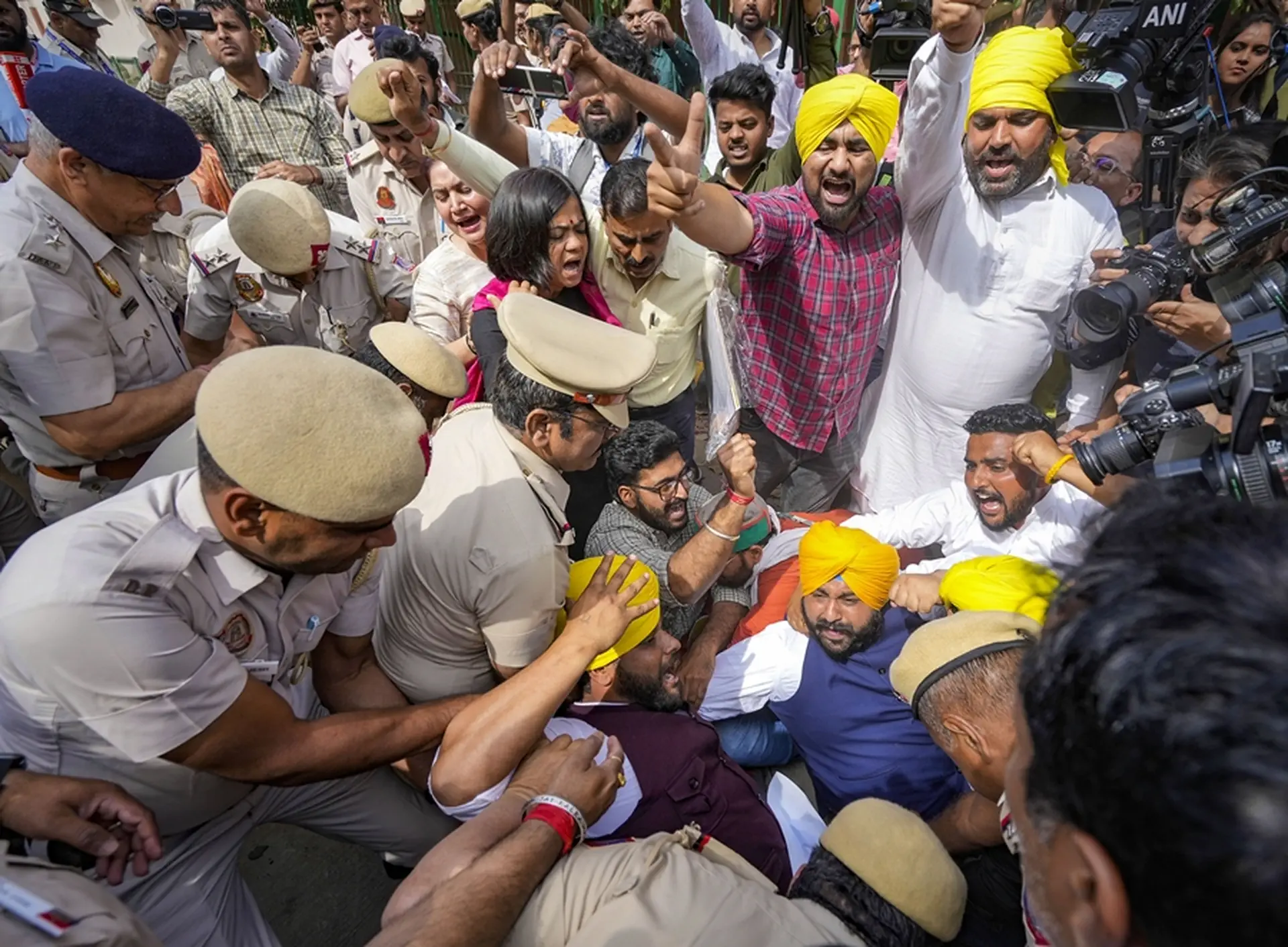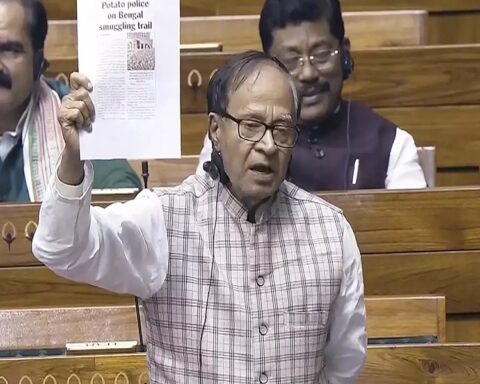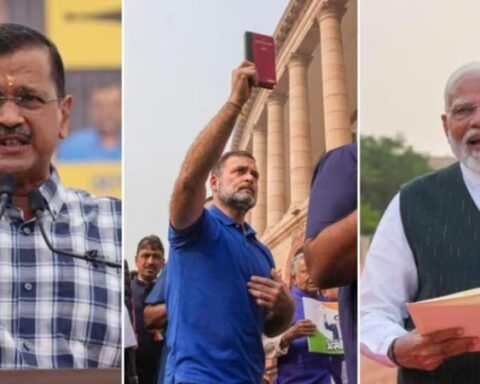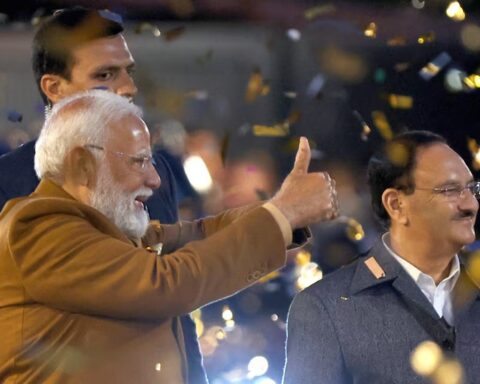NEW DELHI, March 26 (Reuters) – Police in the Indian capital detained dozens of opposition supporters on Tuesday as they attempted to march to Prime Minister Narendra Modi’s residence to protest against last week’s arrest of Delhi Chief Minister Arvind Kejriwal.
Kejriwal, a key opposition leader whose Aam Aadmi Party (AAP) has governed the national capital territory for a decade, was arrested by the financial crime-fighting agency on corruption charges relating to the city’s liquor policy, weeks before India begins voting in general elections on April 19.
He was remanded to the custody of the Enforcement Directorate until March 28, with the lawyer for the agency arguing he was the “kingpin” in the case and needed to be interrogated.
Kejriwal’s party, all of whose main leaders are now imprisoned in connection with the case, says he has been “falsely arrested” in a “fabricated case”. The federal government and Modi’s Bharatiya Janata Party (BJP) deny political interference.
On Tuesday, Kejriwal’s supporters attempted to march to Modi’s residence, but were stopped by police at a location where they gathered about 5 km (3 miles) away.
Television visuals showed several women protesters sitting on the ground and chanting slogans as police personnel tried to move them from the spot.
“We want to say, release our Arvind Kejriwal,” one of the protesters told broadcaster India Today.
Multiple metro stations were closed “until further notice” due to “security reasons”, the Delhi Metro Rail Corporation said on messaging platform X on Tuesday morning.
Delhi Police issued a notice warning traffic would be affected “in view of special Law & Order arrangement” in the city.
AAP is part of the ‘INDIA’ bloc, an alliance of more than two dozen political parties formed last year to jointly challenge the BJP in the general elections.
The group plans to hold a joint rally in Delhi on March 31 to protest against Kejriwal’s arrest, hoping to renew their unity after bickering and failed attempts at sharing seats to field common candidates against the BJP.
The arrest of the high-profile Kejriwal, whose party also rules the northern Indian state of Punjab, has drawn international attention, with Germany and the U.S. appealing for a “fair” and “impartial” trial in the case in line with “basic democratic principles”.





